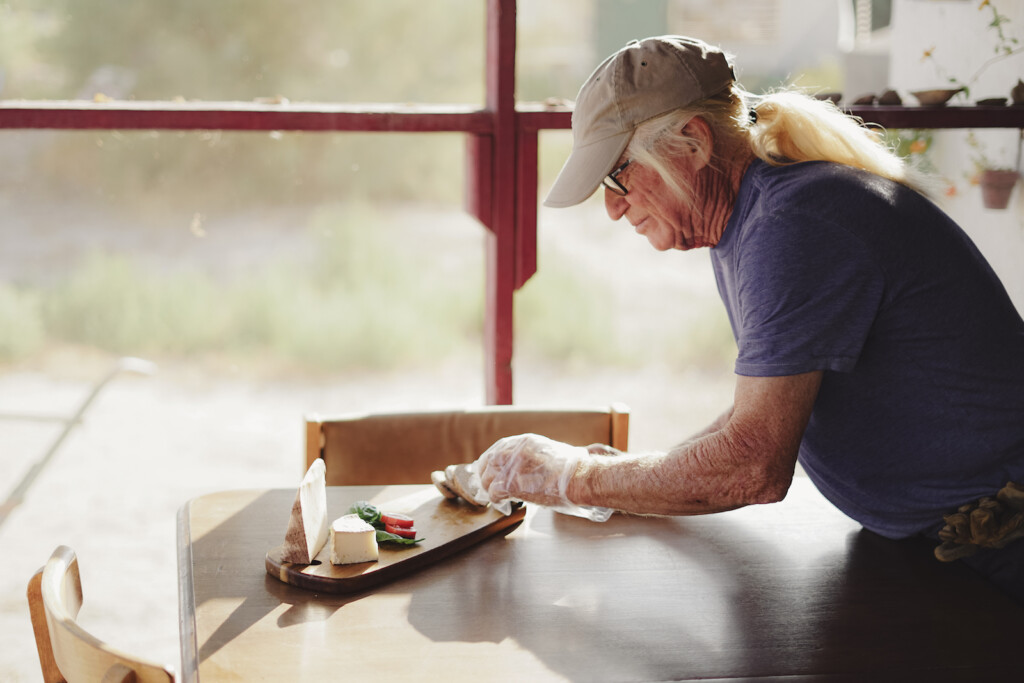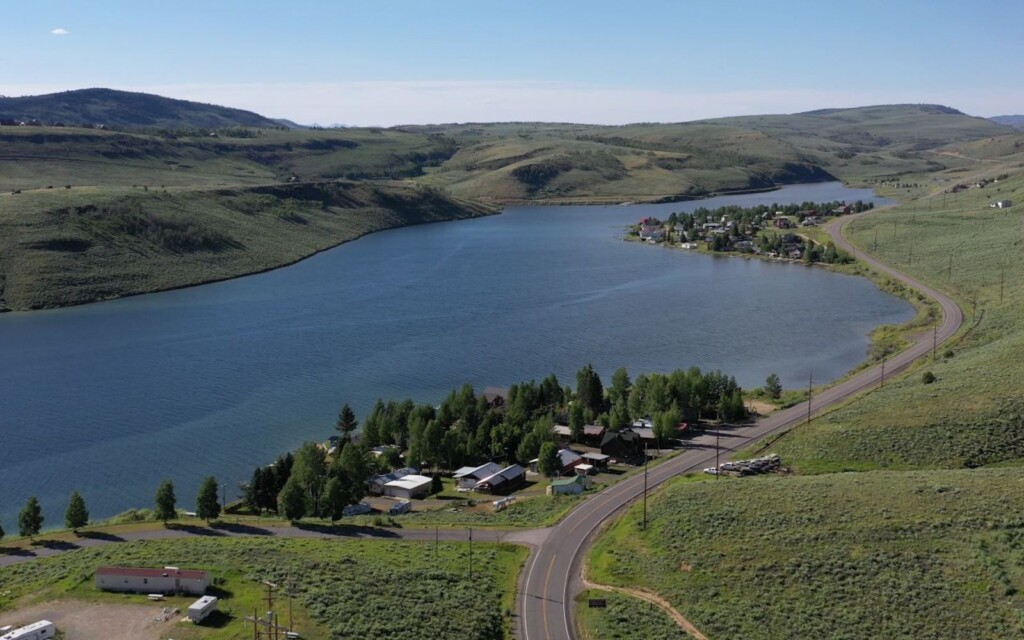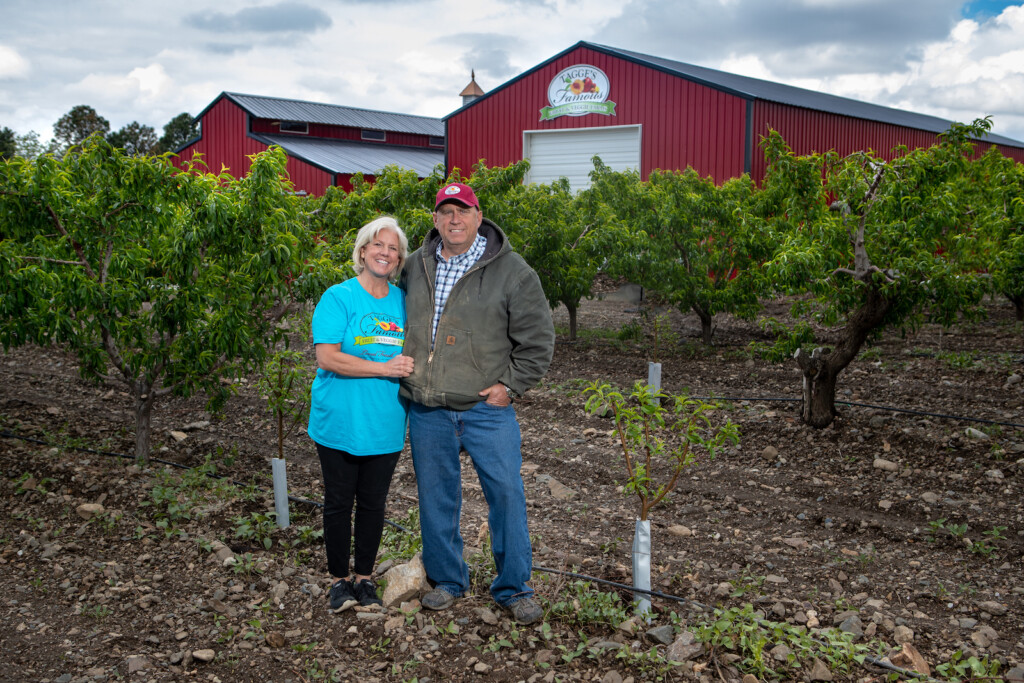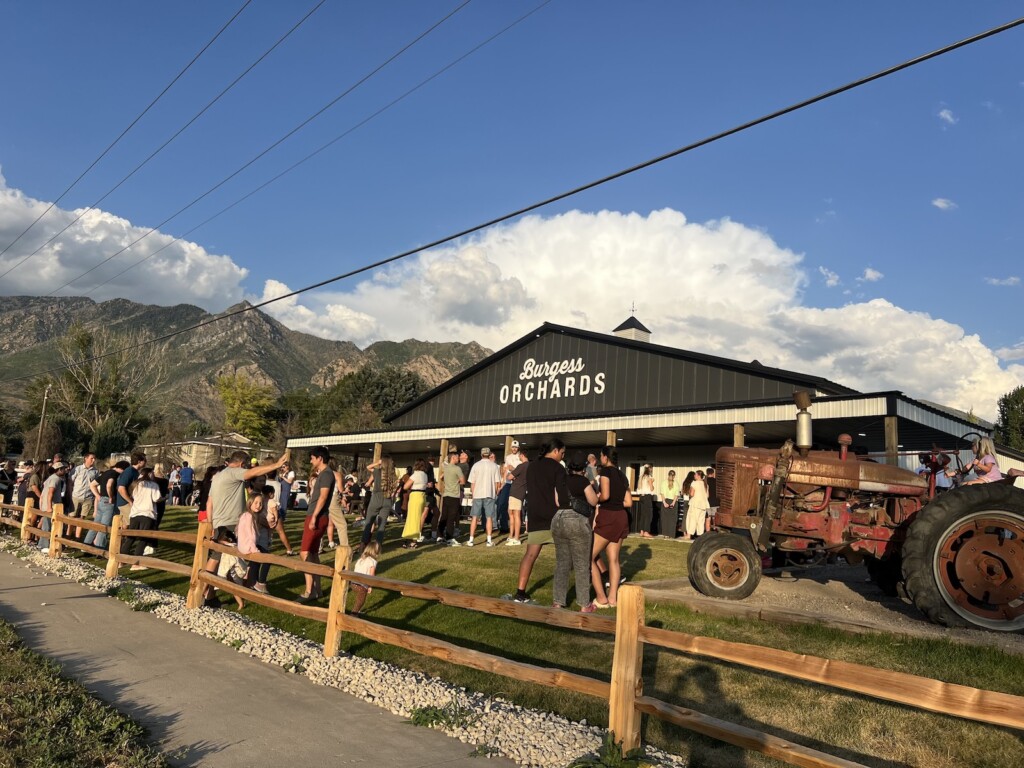Mesa Farm Market is easy to miss. The sign emerges suddenly between two tall cottonwood trees, which drape and cast long shadows over the small building. The drive between Hanksville and Capitol Reef National Park numbs your mind with the austerity, and in an instant you’ve passed the farm without realizing anyone was there.
The farm sits along the banks of the Fremont River, a silty, creek-like river that’s prone to severe flash floods. North and South Caineville Mesas loom above the 50 acres, occasionally inundating the fields with floods from the other direction as water pours off the rim. The Henry Mountains stand in the distance, isolated and lonely; the last Utah mountains to be mapped.
It’s a challenging environment that has become more difficult as weather patterns intensify, though Randy Ramsley won’t use the word “challenge” himself. He views these material struggles as learning opportunities — a necessary perspective in a place where the trials can easily overwhelm.
This strikingly dry environment is the last place you’d expect to find such abundance, with fruit-laden orchards and an assortment of vegetables and herbs. It’s also the unexpected home of award-winning goat cheeses, particularly the French tome (or tomme), a style that originated in the rich Alps environment.
After 27 years along the river, Randy and his partner Roseann decided to sell most of his herd and step back from the labor-intensive cheese production. It’s a well-earned semi-retirement but a bittersweet end to a fare that uniquely embodied the terroir of the Utah desert.
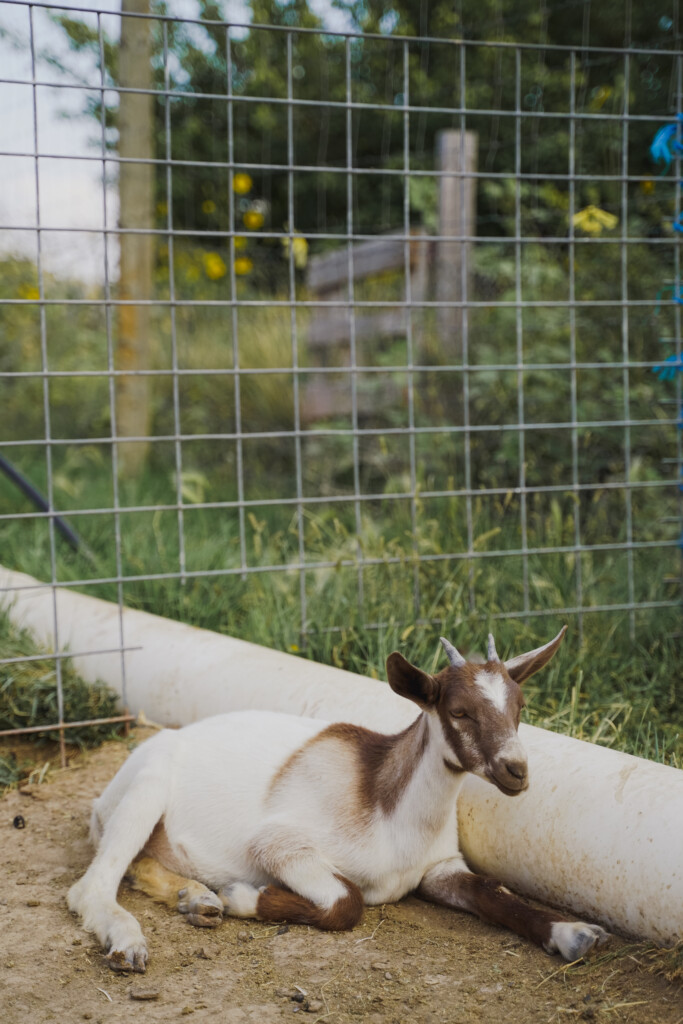
Goats
In 1996, Randy Ramsley made a career change and purchased a 50-acre piece of land in Caineville with his first partner, Deborah. Though Randy was raised with a farming background in Yankton, South Dakota, he moved in and out of the agricultural world for decades. Many of these career moves appeared lateral, but these skills would later play into his farm, as help and resources are slim in that part of the country.
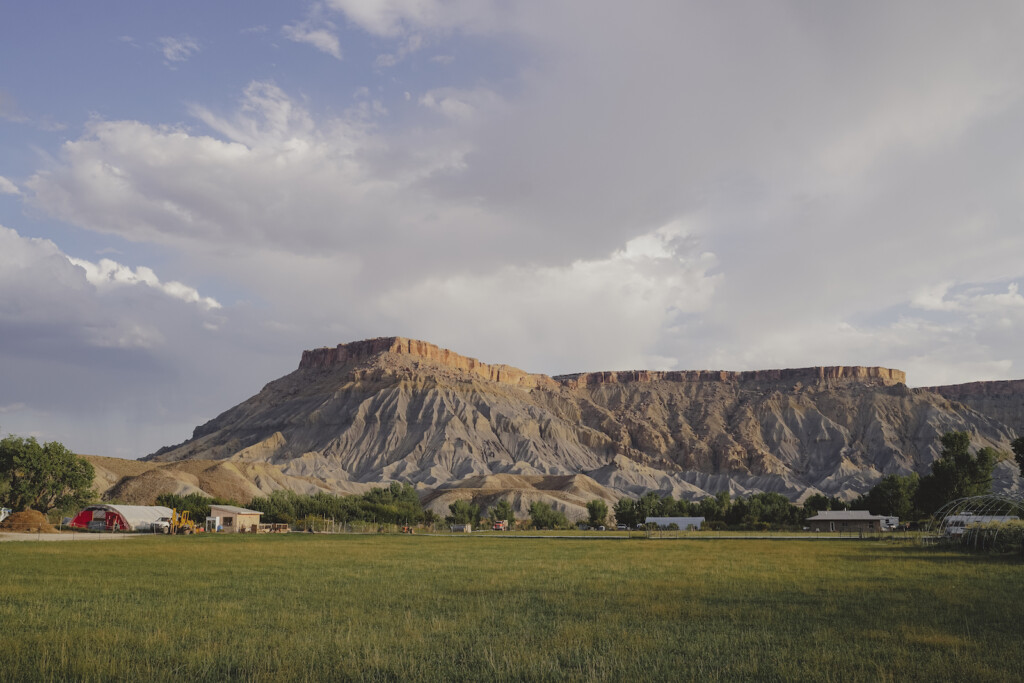
He initially struggled with the climate as he introduced organic matter into the Mancos soil to complement the ancient tidal flat micronutrients. With some collaborative help from his neighbors, he was able to discover which cover crops would encourage the fungi and macronutrients he needed to grow.
Goats weren’t part of his plan, so Randy reluctantly accepted his neighbor’s herd when she retired. This began his illegal goat cheese production, mostly to share amongst friends. A chance encounter with two French visitors inspired him to apply for a USDA loan and his cheesemaking began in earnest.
Rosaline, a young French woman traveling in America for three months was one of those visitors. What started as a three-day offer turned into two and a half months of assisting on the farm, and she returned two years later with another visa and a wealth of cheesemaking knowledge she had learned in the interim.
Randy’s story is one of portentous meetings. Rosaline may have taught him to make French cheese, but he acknowledges that much of his success is due to the support and generosity of Matt and Yelena Caputo. You may know the name for their delis in Salt Lake City, havens for foodies with a taste for artisan foods.
But Matt wasn’t always a fan of Mesa Farm Market. Tomme is a complex cheese from the humid French Alps, with a buttery aroma and semi-soft texture, and he tried Randy’s cheese at a mutual friend’s insistence.
“It was a French-style tome, which requires very high humidity, and they were trying to do it in the desert and were essentially just desiccating the cheese,” Matt said. “I dismissed it as something that wasn’t of interest to me. But then I kind of forgot about it in one of our coolers and a short time later I noticed that the cheese was coming back to life.”
Randy’s tome had many technical defects, but Matt also noticed herbal notes reminiscent of his grandmother’s garden, with flavors rarely found in American agriculture. Intrigued, he finally called Randy.
“He [Randy] acknowledged that there were some issues with the aging and I said, you know, we have this Cheese Cave program. We should join forces. You make cheese, I’ll age cheese. And so it kind of all started from there.”
In addition to aging the cheese, Matt and Yelena dove into the marketing and branding. The labels and the Caputo’s-exclusive tomes — Barely Legal and Mesa Tome — were their design. It was also their idea to enter the Utah Cheese Awards in its inaugural 2017 competition. Look up past winners and you’ll consistently see the name Mesa, garnering Gold, Silver, Bronze, and Best in Show awards for Caputo’s and the farm year after year.
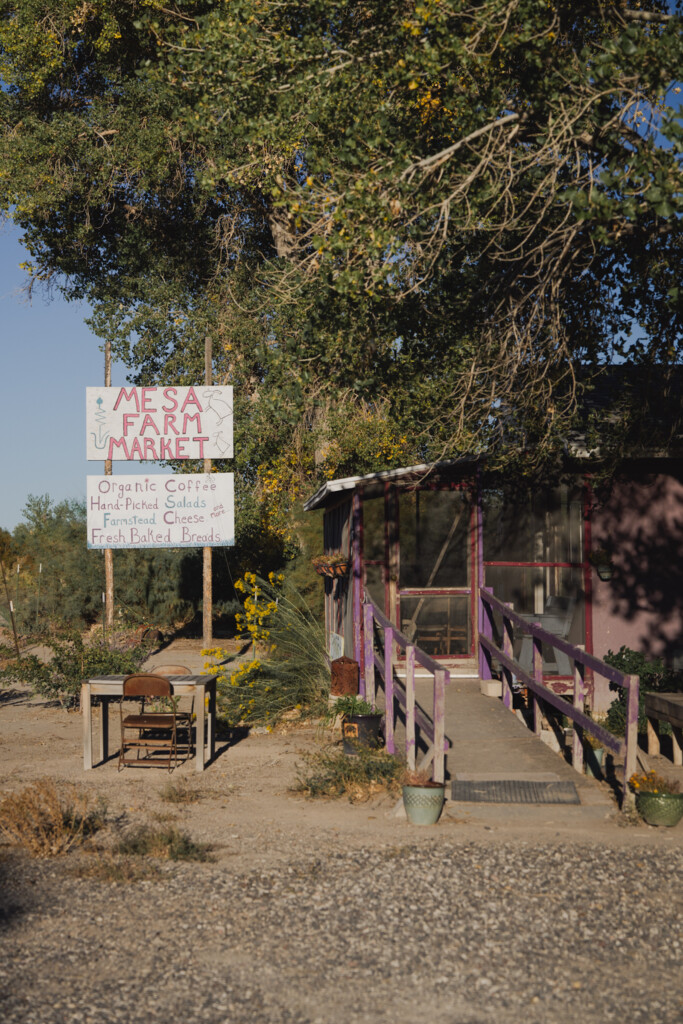
Intuition
Much of Randy’s success derives from his ability to relate to people regardless of their transience or ideologies. He never would have gotten Mesa Farm off the ground without the help of his neighbors or met Matt, Yelena, or Rosaline.
Healthy respect for people, food, and the environment drive Randy, and he sees the connections between them. Though he has followed organic principles since the 1970s, he is not USDA-certified and believes it’s better to interact with farmers rather than follow blanket standards that are prone to loopholes.
“If you can trust your intuition, you can go to most farmers and begin a discussion with them and begin to get a sense of whether they’re in it for the money or whether they’re in it for the real reason — the food. If you have any questions, you can say, can I visit your farm some day? People just need to verify, verify, verify,” Randy said.
This respect and deliberate unhurriedness is evident in the market’s menu, in which customers are given the ingredients but encouraged to assemble the bread, cheese, pesto, and vegetables themselves, an act that requires attention and presence. The farm and its philosophy feels fatefully placed near Capitol Reef National Park, reminding visitors that recreation and food deserve our full attention.
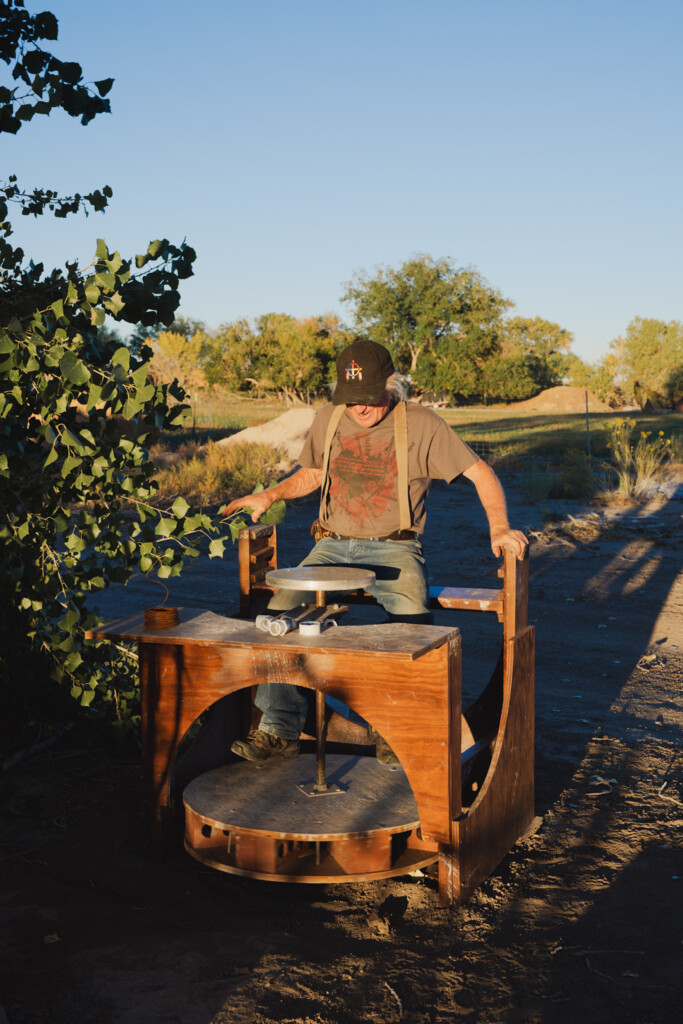
Tome
When I stopped by Mesa Farm Market in October 2023, the formerly stocked coolers were nearly empty. The shelves are still stocked with chèvre, yogurt, bread, and cinnamon rolls, but one lone wedge of tome occupied the shelf where many used to rest.
That wedge was the last piece of tome that Randy will produce. Now, there’s a book of Bogwua on his table and a newly constructed pottery wheel outside. His dog Zig appears thicker, whether from age or a much smaller herd to manage. The farm still has its demands, but removing the heavy cheese production has given Randy time to slow down and focus on other pursuits. It’s also given him time to dig back into the earth and the organic farming that started Mesa Farm Market.
“I’m going back to my roots of vegetable products, baking bread — just that basic gardening stuff again that I really enjoy. I just have begun my 73rd year and I have to learn to be a little gentler on my body. Rosann is trying to help me understand a little bit more of transitioning into being elderly. I’m not going to surrender to that, but I am going to understand the ask.”
Many people who pass by Capitol Reef on their drive through the Mighty 5 have never heard of Mesa Farm Market or Randy’s awards. They may not know of tome. But for 27 years the farm has attracted the most compelling people, partnerships, and foods Utah has to offer, and for my part, I’m glad to have known it at its peak.
Photos by Danielle Vilaplana.

